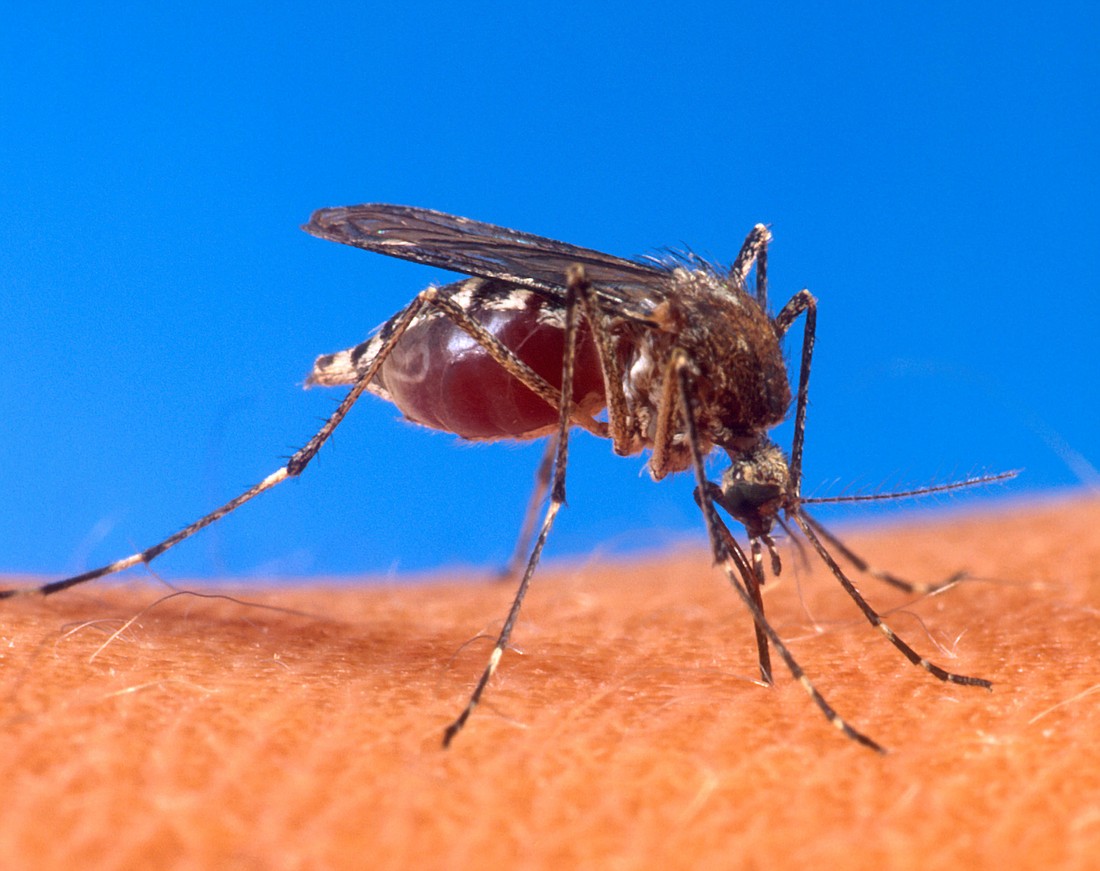- April 19, 2024
-
-
Loading

Loading

What should Palm Coast residents do about Zika virus? Cover up, use insect repellent and avoid travel to affected regions, for starters, according to health experts.
About 440 cases of the mosquito-borne virus were documented in the state of Florida as of Aug. 15, Flagler County Health Department Administrator Robert Snyder said at an Aug. 16 City Council meeting. There were no known cases in Flagler County.
“We’re are the ready at our health department for surveillance, investigation.” Snyder said. “We’ve only tested about five patients. They’ve all been negative.”
Zika, which can be transmitted through mosquito bites or through sexual contact with an infected person, poses the greatest risk for pregnant women, because it can cause microcephaly, a birth defect that causes children to be born with small heads because their brains did not develop normally during pregnancy.
“That’s the big issue, and that’s the big public health threat,” Snyder said. “Probably the biggest piece of advice that we can give pregnant women is: If you’re thinking about becoming pregnant or if you are, do not travel to the South American and Central American countries and other countries where there has been an outbreak.”
Pregnant women who suspect they may be infected can go to the county health department for a free Zika test.
Locally, Snyder said, the health department took part in a training exercise on Zika July 5 . “We had a tabletop exercise. We had about 20-25 people there, representing the city of Palm Coast, other municipalities, the county, the hospital the health department — and we practiced,” he said.
The group took about three and a half hours and ran through four scenarios representing different types of Zika outbreaks, answering questions that arose: who would respond how and where, for instance, and what different agencies’ roles would be.
Residents, Snyder said, can do their part by draining water to eliminate places for mosquitoes to breed, and by covering exposed skin to eliminate places for mosquitos to bite. The mosquitos that transmit Zika bite during the day, not at night.
“Any kind of water — it could be the small size of a bottle cap of water — is where mosquitoes would breed,” he said. “No standing water in your yard, or water fountains or old tires. Get rid of that water. And then cover. Everyone knows the importance of wearing long clothing if you’re going to be out in the middle of the day when these mosquitos are biting, or at night. ... and of course use an insect repellent. It’s the most important thing that could be done. An insect repellent with DEET.”
Statewide, Snyder told the City Council, 3,340 people have been tested so far, and 456 pregnant women have been tested at no charge.
Most cases have appeared in people who have traveled to the Dominican Republic or Puerto Rico, but 30 people in Florida — 28 of them in a roughly one-square-mile area around the Wynwood neighborhood in Miami — were infected locally.
As of Aug. 17, 35 of the state’s 67 counties had Zika cases, according to floridahealth.gov.
The five counties with the most cases were: Miami-Dade County (136 cases), Broward County, (85 cases), Orange County (53 cases), Palm Beach County, (23 cases) and Osceola County (18 cases).
Closer to home, there were seven reported cases in Volusia County, three in St. Johns County and none in Putnam County.
For most people who get Zika, the illness won’t pose major problems. In fact, most won’t even know they have it: Only 20% show symptoms.
Even then, Snyder said, “The signs and symptoms are very mild: low-grade fever, rash, joint pain, conjunctivitis, body aches, headache — as a matter of fact, dengue, chikungunya and West Nile are a little more severe.”
The Zika virus has an incubation period of two to 14 days, Snyder said, before any symptoms develop.
Gov. Rick Scott declared a statewide public health emergency because of Zika Feb. 3 and designated $26 million in state funds to be available for Zika surveillance and testing.
The state now has the capacity to test a little over 6,000 people, Snyder said.